|
In celebration of the Fourth General Congress of the Union of the Catholic Apostolate, the Catholic Apostolate Center will share weekly homilies from the Congress. Homily for July 10, 2024 “Grant us to be instruments of peace and love, reflecting the love of Christ in every situation” The theme for our reflection and prayer today is, once again, taken from the Prayer in Preparation for the UAC General Congress. It is a very sincere prayer from our hearts: “Grant us to be instruments of peace and love, reflecting the love of Christ in every situation.” Every Pallottine is called to be an instrument of peace and love, by reflecting the love of Christ in every possible situation.
This prayer reminds of the famous prayer of the great Saint Francis of Assisi: “Lord, make me an instrument of your peace.” It is a timeless expression of humility, love, and service to others. The prayer captures St. Francis’s commitment to peace, love and compassion, emphasizing virtues like forgiveness, understanding, and selflessness. It is also a reminder for all the members of the Union that they have to be genuinely involved in the affairs of the world. They have to be instruments of peace and love, fraternal communion and solidarity, through the exercise of forgiveness and compassion. They have to be healers and protectors of the widows and orphans. But all these things are to be done not on their own merit; they have to only reflect the love of Christ in every situation. The first reading from the book of Hosea reminds us that we can cease to be instruments of peace and love. Israel became like a luxuriant vine producing a lot of fruit. “The more his fruit increased, the more altars he built; the richer his land became, the richer he made the sacred pillars. Theirs is a divided heart; now they will have to pay for it. He himself will hack down their altars and wreck their sacred pillars.” (Hosea 10:1-2) God destroyed the arrogance and the symbols of immortality. “Sow saving justice for yourselves, reap a harvest of faithful love; break up your fallow ground: it is time to seek out Yahweh until he comes to rain saving justice down on you.” (Hosea 10:12) Hence the invitation is to reap a harvest of love. In the Gospel passage of today, we see Jesus empowering the twelve disciples to reap the harvest of love, and proclaim the Kingdom of justice and love. “He summoned his twelve disciples and gave them authority over unclean spirits with power to drive them out and to cure all kinds of disease and all kinds of illness.” (Matthew 10: 1-7) Jesus gave them authority over unclean spirits, the source of division and conflicts. The Kingdom of God will be marked by the values of communion, justice and peace. In this context the words of Saint Pope VI in Populorum Progressio (n.76) are very appropriate: “When we fight poverty and oppose the unfair conditions of the present, we are not just promoting human well-being; we are also furthering man's spiritual and moral development, and hence we are benefiting the whole human race. For peace is not simply the absence of warfare, based on a precarious balance of power; it is fashioned by efforts directed day after day toward the establishment of the ordered universe willed by God, with a more perfect form of justice among men.” Speaking of the mission of the Union of Catholic Apostolate in cooperation with all people of good will, living images of charity itself, n.16 of the General Statute identifies a number of areas for our engagement with the world, such as: protecting the values of human life and the family, working for the promotion of justice, solidarity, peace and protection of creation, encouraging inter-religious dialogue, and caring for the poor and needy. We have innumerable examples of our commitment to the needs of the people of God in our Pallottine Family. What we do for the poor and needy will be most meritorious before God. Without genuine commitment to acts of fraternal charity, the Union will always remain just a concept without flesh and blood. I conclude with these words of hope expressed by Pope Francis in his Encyclical Letter Fratelli Tutti: “I invite everyone to renewed hope, for hope 'speaks to us of something deeply rooted in every human heart, independently of our circumstances and historical conditioning. Hope speaks to us of a thirst, an aspiration, a longing for a life of fulfillment, a desire to achieve great things, things that fill our heart and lift our spirit to lofty realities like truth, goodness and beauty, justice and love… Hope is bold; it can look beyond personal convenience, the petty securities and compensations which limit our horizon, and it can open us up to grand ideals that make life more beautiful and worthwhile.' Let us continue, then, to advance along the paths of hope.” (n.55) Amen. Fr. Jacob Nampudakam, S.A.C. UAC President
0 Comments
When I was a young adult, my mom and I would discuss politics. When the discussion got heated, mom would say, “I totally disagree with you, but I will defend to my death your right to say it.” I was baffled; annoyed that she ended the debate but also affirmed. A close read of the Declaration of Independence helps me understand the depth and significance of what my mom meant. The Declaration of Independence is 1,337 words long, written by a committee of five with Thomas Jefferson, a delegate from Virginia, as the principal author. It was 1776; the Continental Congress had convened in Philadelphia and Jefferson drafted the declaration in his boarding room. Independence is not declared until the last paragraph. As the summation of the rationale for independence, this paragraph is worthy of our attention and consideration. 1. The delegates declare they are representatives of the colonies assembled “in congress.” 2. They appeal to “the Supreme Judge of the world” for the moral rightness of their action. 3. They speak in the name, and with the authority of, “the good People of these Colonies.” 4. They declare the colonies “free and independent states” severing all ties to the King of England and “the State of Great Britain.” 5. They declare that they have all the rights of an independent state. 6. Finally, in support of this declaration, our founding fathers, “with a firm reliance on the protection of divine Providence,” mutually pledged “to each other our lives, our Fortunes, and our sacred Honor.” I believe it was this mutual pledge, a pledge of life, fortune, and sacred honor, that my mom was getting at in our debates. We can disagree and debate vigorously if, and only if, we have a bond that connects us to each other deeper, and greater, than either of us. It is this mutuality that we must reclaim as citizens of the United States of America. When our founding fathers unanimously approved the Declaration of Independence on July 2nd, and then signed it on July 4, 1776, they were committing treason. They shifted their allegiance from the King of England to each other. Our founding fathers were far from perfect, but they were people of faith and principle. They had a clear, even reluctant, rationale for independence. Most of us know the beginning of the second paragraph, “We hold these truths to be self-evident…” God gives all individuals equality and the unalienable rights of life, liberty, and the pursuit of happiness. To secure these God-given rights, humans create governments that derive “their just powers from the consent of the governed.” The divine “right” is given to each person, not to a king. Consequently, when a government no longer secures these rights, then it is the right of the people; “it is their duty,” to “throw off” the abusive government and create a new one. Based on these principles, the founding fathers – as if they were prosecuting a case before a world court of independent states – identified 27 charges against the King of England. They concluded this list of charges with two additional paragraphs. One where they chronicle the many ways they attempted to address these grievances directly with the King. The second is on their efforts to engage their “brethren.” So, the second paragraph is the rationale based on the rights God gives to everyone, then the 27 grievances, paragraph three chronicles their appeal to the King, fourth is an appeal to their “brethren,” and the fifth and final paragraph is the declaration of independence. What about the first paragraph? It serves as a preamble. Independence breaks the bond with one country and establishes a new one, which “the Laws of Nature and of Nature’s God entitle them.” Respect for the “opinions of mankind” require that this new nation “declare the causes which impel them to the separation.” This review of the Declaration of Independence helped me appreciate what mom taught me fifty years ago. It has renewed my faith in the founding principles of our country – faith in God, equality, unalienable rights, the responsibility to create a government that secures those rights, and our pledge of mutuality. As Catholics we understand mutuality through the principle of solidarity which is grounded in the incarnation itself, “the Word became flesh and made his dwelling among us” (John 1:14). Pope Francis, in Fratelli Tutti (no. 66), encourages us to “rediscover our vocation as citizens” because we are “called to direct society to the pursuit of the common good.” Our bishops, in Forming Consciences for Faithful Citizenship (2023), applied this truth to our country. “The perennial role of the Church in public life is proclaiming timeless principles: the infinite worth and dignity of every human life, the common good, solidarity, and subsidiary.” Democracy is not for the faint of heart. As Catholics, we wholeheartedly embrace the challenges and the promise of democracy because we believe it is only possible through faith – in God and each other.
Have you ever considered what it would have been like to be a member of the Church in the first few centuries? Jesus would have been fresh in peoples’ memories, but the rich Christian tradition we have today would have only just been taking shape. Those early followers of Christ would have been interpreting what Jesus’ teachings meant and figuring out how to live them out in their daily lives, both individually and communally. It was in this context that St. Justin Martyr, an early Christian convert and apologist who lived in modern day Israel from about 100-165 AD, lived. St. Justin is well known for his First Apology, which he wrote to the Roman emperor, Antoninus Titus, as a defense and explanation of Christianity. This text not only gives us insight to what it was like when the Church was taking shape, but it also provides a rich insight into how we can live as Christians to this day.
1) Being Christians in name and deed St. Justin knew as well as anyone today that it is much easier to say you are a Christian than it is to truly live as one. He wanted the emperor to truly understand what Christianity was and Who it was founded upon, to not base his opinions on the popular zeitgeist: “For from a name neither praise nor punishment could reasonably spring, unless something excellent or base in action be proved.” (Ch. IV) For us today, we live in a world where the name “Christian” can carry so many different connotations. It depends on each of us to “prove something excellent” in our actions. Besides claiming the name Christian, are we living and worshiping in a way that reflects this privileged name? 2) How to live as Christians Whether Christians in the first century or in the 21st century, we are called to live for God and His eternal kingdom above all else. With his eyes focused on Heaven, St. Justin was able to accept persecutions because he understood that his earthly life was temporary. He encouraged others to “imitate the excellences which reside in [God], temperance, and justice, and philanthropy.” (Ch. X) Rather than the material offerings sacrificed at the time, St. Justin wanted to make an offering of his life by setting aside his own will and taking up God’s ways. Rather than imitating the pagan gods, he wanted to become deified by “living near to God in holiness and virtue.” (Ch. XXIII) While our settings may be different today, we can still practice the patience, love, and charity towards others that St. Justin encouraged. 3) Christian Community Throughout the Apology, St. Justin is not just preaching about individual Christians, but the whole Christian community. From the beginning, the necessity of community was always understood. It was through one another that they would receive the faith, be converted, and persevere in the faith. Rather than worship alone, the early Christians understood the need to come together. The faithful would gather to offer prayers for one another to be “found good citizens and keepers of the commandments.” (Ch LXV) They would celebrate the Eucharist in remembrance of Christ’s passion and for their own nourishment. They would collect money to be distributed for the needs among them. Rather than seeing this early form of the Mass as a Sunday obligation, it was the fitting response to their new life in Christ. We too can embrace this view of community as the place we offer God fitting worship and truly practice our faith. While today most of us are blessed to not fear extreme persecution or martyrdom, we do still have the freedom and responsibility to make the choice for God and the good daily. Through the intercession of St. Justin, may we be strengthened to boldly profess and live out our faith. **This image is from: https://www.wordonfire.org/articles/contributors/st-justin-martyr-on-the-eucharist-and-the-ancient-mass/ Growing up in the 90’s meant a lot of time with family movie nights, being ridiculously goofy before social media was a thing, and quoting some classic cartoons. There is one that stands out: Peanuts. Some of the characters include Charlie Brown, Sally, Linus, Lucy, and, of course, there is Schroeder. Although those are some of my favorites, the cast was big and the movies and episodes covered a variety of topics and seasonal fun for all. We’d sometimes quote various parts (as one does) in our regular conversations, like when Charlie Brown says, “Good Grief” anytime he is dismayed, or when Sally asks for gifts for Christmas, “Just send money, how about 10s and 20s?” The music, written by Vincent Anthony Guaraldi, is catchy and helps tell a story, plus the character that plays the piano, Schroeder, provides the friends a chance to dance to the theme song. My brother learned that song when we were kids and he played it every single chance he had - just like his favorite character Schroeder. You see, Jon Kirby was the type of musical genius that, once he learned to play piano, could hear a song and teach himself to play it. He read music, saw music, and felt music, and Peanuts songs were some of his favorites to play. Later, when he began writing music of his own, he penned something so whimsical, that it required 21 hands to play it. Every pianist who had the honor of playing it told him how fun it was to play something so silly yet jazzy, and I am certain that was some homage to Guaraldi. Tragically, my brother passed away in November of 2023 from an unexpected heart condition, and I have been grieving his loss every day since then. I am coming to terms with accepting it more as time goes on and I am seeking help for healing, but it has been hard and sad and terrible to endure. Someone full of so much life to live, suddenly gone and taken.
Grief is a weird thing, it makes people act differently and no one quite knows how to do it “right.” Am I grieving enough? Is my grieving showy? Should I take time to spend on how I am feeling or do I keep pushing through? Do I talk about it or not talk about it? How can praying help and if it helps, how will I know? What is up and what is down, and why do people care about ridiculous things when my loved one is gone? These are all thoughts and feelings one might have, and when you peel away all these questions, it reveals the sad human who has been met with an atrocious reality. There has been a tragic loss and we are sad, angry, anxious, scared, heartbroken, and scarred from it. Our mind tries to make sense of it, but we cannot. Our hearts seek answers and we are often left without any. Our bodies are here while our focus is stuck on this tragic loss and it is hard to turn our fixated selves to other things. For me in this time of grief, I have been letting myself cry whenever I need to. I have been reaching out to family and friends to talk and share stories, but where do I go from here? A friend of mine Sarah Frances, who has had her share of grief in the past decade, lost both of her parents and still maintains a life of joy and fun and work and remembering. She is inspiring. I asked what advice she had for me and I thought her words were profound: “When you lose someone it is never the right time. But one of the greatest connections that we have to every single person is that we all go through this at some point and [someone] knows almost exactly what you are feeling.” She went on to say, “It does not matter if you lose someone you love, hate, tolerate, are related to…loss hurts, but you are not alone.” You are not alone. She is right that I am not alone, even if the pain feels like no one else could understand. Some people understand. I have been surrounded by so many loved ones and friends and acquaintances who have checked in and offered support. I have heard from people who I have never met, but who knew Jon. It’s been humbling and lovely, but painful and heartbreaking too. The community that has surrounded not just me, but my dad and my sisters, and his wife and her family, is just so full of love and I cry thinking about how grateful I am for all of it. The love from others is what got me through some days, like my husband who lets me just sob some nights and I know he will always hear me out when I am having a hard time with it, comforting me with a warm embrace. Even my little 4 year old has now experienced grief, and keeps me moving forward while remembering happy times. It is all hard, but it is good to have a village to go through it with. Isaiah 41:10 says, “So do not fear, for I am with you; do not be dismayed, for I am your God. I will strengthen you and help you; I will uphold you with my righteous right hand.” This connects it all for me. I have felt Christ in so many people. I feel strengthened in knowing that I am not alone in not only my grief, but my grieving journey, my faith journey, and the people walking alongside me in life. I am seeking God and finding God in the people and the kindness, and to me, this feels like “good grief” if that could be a thing. Life is hard. We can do it. Good grief! In July, I had the opportunity to attend the Summer Leadership Development Program with The Lay Centre in Rome. I spent one week in the Eternal City and it was such a wonderful experience! Going into the week, I was not exactly sure what the program would entail. I knew that it was a leadership program for young people in the Church to better understand their call to leadership, but I was not sure what the actual program itself would be like. This also was the first time that I had traveled internationally by myself! I was both excited and nervous at the challenge. What do I do if my flight gets delayed? What if I am unable to find a taxi at the airport? What if I get lost trying to find the entrance to the Lay Centre? All these questions (and more) circled around in my mind as I prepared for the trip. I boarded my flight at JFK Airport in New York and arrived smoothly in Rome on a sunny Friday afternoon (first fear of my flight getting delayed was avoided) and I successfully found a taxi to take me from the airport to the Lay Centre (second fear tackled). Finally, I was welcomed into the Lay Centre by their wonderful staff and began to settle myself into my new home for the next week (third fear conquered!). My first day and a half in Rome was free time, to adjust to the time difference and explore the city. I enjoyed walking past the Colosseum from our accommodations at the Lay Centre and over to the Trevi Fountain where I would get a gelato to enjoy on my walk back. It was such a great start to the trip! I also began to chat with the other participants of the program; we all stayed in the same hall with our own rooms and shared a bathroom with one other person. It was a similar layout to what you may see in a dorm room. I was one of four participants from the United States, the other twenty or so were from all over the world - from Cameroon to South Korea to Afghanistan - there were so many different cultures to learn from. I really saw the work of the Lord through all these people. It was so interesting to see that we all come from different backgrounds, but all had one thing in common - a love for the Church. We spent the week learning about leadership: What does it mean to be a leader? How can we be effective leaders? What does it mean to allow the Lord to move us as leaders? How can we lead with the morals Jesus taught us? We sat through various presentations from different religious communities and learned about the models of leadership through St. Benedict and St. Ignatius Loyola, as well as reflected on our own individual leadership styles and strengths. All of these discussions bore many fruits throughout the weeklong program and spurred great conversations about the importance of faith in leadership. Each of us brought our own, individual idea of leadership and we were able to grow on models that others brought to the table. Each day, we began with morning prayer, and we were encouraged to volunteer to share a prayer exercise with the group. One of my favorites was learning and participating in the Taize prayer. I have always enjoyed prayer through music, but I had never experienced this meditation technique. It was very calming and helped me to put my focus on the Lord. We ended each day with evening prayer followed by dinner, which we ate together as a group. Sharing meals together as a group and telling stories from our own experiences and backgrounds really helped to strengthen our bond as a group. Every meal was filled with inquisitive insight, laughter, and joy (as well as delicious home cooked Italian food!). I had never lived in a community before; I had lived in a dorm for several years in college, but I had never experienced community life like this. It was such a great experience! Everyone was so welcoming, warm, friendly, and always went out of their way to help one another. Whether it was helping me carry my suitcase to the fourth floor, filling up my glass at dinner, or lending me a bus ticket, I was struck by the selflessness of others. In reflection, I experienced so much growth during this one week abroad. I grew in my confidence of solo travel, I grew in my professional life by learning various leadership skills, I grew in my personal life from meeting so many people of different cultural backgrounds, and I grew in my spiritual life through our studies of the saints. I am so thankful to have been given the opportunity to attend the Summer Leadership Development Program and will continue to grow from the experience for years to come.
This past week, I had the opportunity to be an extra in The Chosen TV series. The show is currently filming the 4th of 7 seasons and is based on the lives of those who were “chosen” to follow Jesus. Some statistics state that “Season 1 was the largest crowd-funded project of all time raising $10 million from over 19,000 people. After 3 seasons, there have been 110 million unique viewers watching the episodes 520 million times across 175 countries. The whole series will soon be dubbed in 50 languages with plans to subtitle in over 600!”
One word that describes this show and the phenomenon that it’s generated is communion. During this Eucharistic Revival, it’s critical to draw our attention to the one-ness that Jesus desires for His Church: “I pray not only for them, but also for those who will believe in me through their word, so that they may all be one, as you, Father, are in me and I in you, that they also may be in us, that the world may believe that you sent me.” John 17:20-21 Eucharist means “thanksgiving” while Communion means “sharing in common.” Communion is the way we come together to share what we have received from God. A popular motto concerning the show is “it’s not our job to feed the 5,000, it’s only to provide the loaves and fish.” God gives each of us a gift and calls us to the table to share it with others so all can be fed. The world is being fed by diving deeper into the greatest story ever told – Jesus Christ, born in Bethlehem, raised by two devout Jewish parents, and gathering a unique group of friends one-by-one (if you’ve read the Bible, you know the spoilers that He is crucified, laid in a tomb, and then is seen speaking and eating with his friends once again, but that’s not until Seasons 6 and 7). Creating a show requires an astounding number of people to come together to make the final product. Though the focus is on the main cast on screen, it’s important to have background actors bringing the scene to life, set designers making it look realistic, makeup artists transforming characters, crew supporting the cast in between takes, assistant directors helping the director, writers, producers, editors, etc. We are all needed to tell a good story. For example, though a priest is able to say Mass on his own, the celebration of the Liturgy includes the congregation and the various ministers that assist him. God made us for community and that’s a big reason why we are obligated to participate in Mass weekly. Uniting together in prayer, song, and fellowship encourages and enlivens us as we continue to bring life to faith and faith to life as we carry our individual crosses each day. As a TV show, The Chosen has attracted viewers of all backgrounds, cultures, and beliefs. The focus on the historical Jesus unites people because we can all share the experience of being human. In between takes on the hot Utah set, I sat in the air-conditioned tent with hundreds of background volunteers from around the world. Some lived down the street and others flew across oceans to come together for this experience. I met people from all denominations and know that not all were even believers. They were just intrigued by the community that has formed around the show. During the last day of filming last week, the cast was required to strike in union with the Screen Actors Guild. Since the show itself is independent from Hollywood, production could continue with the background actors. It was strange to be on set without Jesus and the disciples, but it reminded me of the quote from St. Teresa of Avila: “Christ has no body now but ours, no feet but ours.” My fellow background actors embraced this opportunity to carry the load on set for the cast who were missing us since they stayed home. While “TV actor Jesus” (Jonathan Roumie) was not visible, I believed that Jesus Christ was indeed present. At Mass, we may not see the historical Jesus with our eyes or hear him with our ears. And yet, the priest stands in persona Christi so Christ’s Word can be heard and His Body and Blood received. I’m often asked if I’m Catholic or Christian. Catholicism means “universal.” No matter where I go in the world, I can find a Catholic Mass and feel like I’m at home. Though the prayers may be in a different language than my native tongue, the same Jesus is present in the Eucharist. My experience as a background actor reminded me of how everyone is needed, but not everyone has to stand out. In relationships, it’s about “we” not about “me.” The directors told us that background actors support the scene, not distract from it. If we draw attention to ourselves, the focus on the whole scene can be thrown off so we may be edited out. In our lives, we may feel like “just background,” but in reality, those ordinary roles can create an extraordinary impact. . The background actors who were a part of those large-scale scenes aren’t able to pick themselves out on screen, but joyfully share how it felt to be a part of the crowd. The joy we experience in life comes from standing among our brothers and sisters, not from standing out. Questions for reflection: We are each chosen to live in communion with one another. How are you participating in the Body of Christ?
**The reason I chose this picture is because each one of those people represents a different country! They are all social media representatives for The Chosen!**
In 2020, when the COVID-19 pandemic was beginning in earnest, there were many questions about what would happen in the Catholic Church if people’s lives were upended in such profound ways. In many respects, we may not truly understand the ramifications of a worldwide change in perspective until we can look back at it. That being said, with “the return to normal,” the opening up of parishes, and the re-starting of activities have come questions about what we have learned from this pandemic experience. I think many of us re-learned that community and connection are important. The question that seems to be challenging folks is: Now that we can start to plan to meet in person, what should our parish activities look like? For the past two years, I have had the pleasure of doing Master’s work in Church Management at Villanova University. Most of my studies occurred during this pandemic and offered a unique perspective of what effective parishes and communities have done to respond to a sudden shift in the assumptions of what the Church in the United States looks and acts like. Most of the parishes that were able to weather the storm well were able to do so because they were intentional about what community is and should be. They did not assume that a parish had to be only the functions that happen within a city block or a singular location, but rather can have an online presence and remotely meet people where they are. I think of my friends and colleagues with young families or who have long commutes and the complications that our parishes can impose on people who would like to be involved, but cannot be due to the lives that they lead. Are we as church leaders imposing certain restrictions for the members of the parish to be able to build a community? As active Catholics, our job is to share the joy of the Gospel that we hopefully have experienced with others. The pandemic has proven that there is a desire for community and for Christ in people’s lives despite barriers. However, we as Catholics also need to acknowledge that if we “are now just going back to normal,” we are also going back to the normal of an older and smaller church. We need to see the pandemic not as a temporary event, but rather the opportunity that God has given us to think creatively and reflectively over the past year about what it means to be Catholic in the United States. Similarly, what is our hope for the future of the Catholic Church in the United States? If we do not think about these things, we risk becoming a closed community for only those who are already active members. There were many challenges during the pandemic, but there were opportunities to grow and learn for our Church as well. My hope is that we take the lessons that we have learned, both positive and negative, about what it means to be in a community and to be community leaders and apply those findings in healthy, creative ways going forward. For more resources on navigating COVID-19 as a community, please click here. It’s hard to believe that COVID-19 began to take hold of the Mid-Atlantic region of the United States just two weeks after Ash Wednesday 2020. As we approached Holy Week last year, dry jokes abounded as to whether or not we had to continue to give things up during Lent as COVID-19 had already forced us to give up so much. Well, those jokes have returned a year later as Ash Wednesday is just around the corner and the pandemic is still very much a reality in our lives. Lent is a period of the Catholic Big Three: prayer, fasting, and almsgiving. This preparatory and penitential season helps to prepare us for the glory of the Resurrection. Most Catholics know the drill: you give something up for Lent (and hopefully take something on as well) as you have Easter Sunday circled on your calendar. But last year threw us all for a loop. Used to giving up chocolate or swearing, we were forced to give up worshiping in Church, seeing loved ones, going to school, and so much more. In the months since, almost every person knows someone who has contracted or even died from the COVID-19 virus. Though Lent ended on Easter in 2020, it feels as though it still hasn’t quite ended. We’ve abstained from holiday gatherings, birthdays, and so much more than we’d ever planned, even during the Lenten season. Lent, though, is the perfect lens through which to view the COVID-19 pandemic. Even during this penitential season, we don’t forget the glory of the Resurrection. Yes, the “A-word” and the Gloria are omitted from the Mass. Sure, we focus on the preparation and the penance, but we still receive and glorify our Lord. Even though we are without so much now in the Lent-like COVID-19 pandemic, we still praise the Lord. The last line of Psalm 150 reads, “Let everything that has breath give praise to the Lord.” Not just during the liturgical seasons of Ordinary Time, or Christmas, or Easter, but at all times, everything with breath should praise the Lord. This continues even now, with so much going wrong in our world. With so much suffering and pain—from which none of us are immune—there is still reason to praise the Lord. Baptisms and First Communions still occur. Marriages are still celebrated. Four of my closest friends were married this past summer—which brings new context to the promises of commitment in sickness and health. Even when there has been suffering, God has still managed to bring good out of it. When my own grandfather passed away in October, I was able to spend the last few days before his death with him. This was a time whose memory I cherish, and time I’m not sure we would’ve gotten if he hadn’t gone to his eternal rest. As I’ve gone through my own sickness over the last few months, I’ve made Psalm 150 my mantra of sorts. My life hasn’t been perfect, but God has ordained it and he has sustained it. He has given me breath and life, and for that I praise him. As Matt Maher says in his song Alive and Breathing, “Let everything praise the Lord, in the working and the waiting…in the dying and the rising, let us praise the Lord!” With Lent coming up, and COVID still wreaking such havoc in our world, let everything that has breath praise the Lord! For more Lenten resources, please click here. For more resources to help you navigate COVID-19, please click here.
Through the halfway point in the fall semester, most any college student could testify to the highs and lows of trying to learn in these trying times. From Internet issues, Zoom exams, and burnout, each class that goes smoothly is a little victory, but some days it is just so hard to focus on classes. My inner biochemistry major wishes that learning by osmosis was possible – a passive learning because our attention is drawn to so much distraction. On the other hand, even though it requires a little more active thought, I know there’ve been some highs so far this semester. Even with social distancing, I have made new friendships and renewed others. Since I serve as a Resident Assistant at my university, where we have just freshmen and RAs on campus, I have gotten to see freshmen build friendships, find their niche, and take on leadership positions in the campus community. Through my personal experience and seeing the freshmen on my campus, a word to describe the semester so far would be “perseverance.” For me, perseverance has been continuing along the path of learning despite the challenges and difficulties. I have worked to develop four actions into habits during this semester to help build perseverance:
Ultimately, I hope to continue building upon these four actions for the rest of the semester to help strengthen my perseverance and to experience more highs than lows from this abnormal time. To help motivate me to keep going day after day in classes, I wrote this quote above my desk: “Nothing great is ever achieved without much enduring” – St. Catherina of Siena For more resources to grow spiritually during the COVID-19 pandemic, please click here.
What does it mean to be bicultural? It means that a person can represent and identify with more than one country. I have been given the blessing of representing three cultures at the same time: I am Mexican, Salvadorian, and American. Representing these three cultures has given me the opportunity to see God’s beautiful creation from different perspectives and enriched my understanding of the Church. As I have grown, I’ve encountered Christ who has revealed my vocation and his love for me through this tricultural blessing. As a child, all I knew about my faith was either through my parents or Sunday school at my local parish. I was taught Bible stories, saint stories, and prayers in Spanish. I was happy to be in that bubble away from the math problems at school, my English cartoons, and anything related to the American culture. These were the only times I could actually learn about who I was as a Catholic Latina. My Mexican and Salvadorian traditions were intertwined with my faith. Being Catholic and part of the Latino community meant we professed our love for God through our actions. Our focus wasn’t reading or studying the faith because that was never in our reach to dive into. Instead, the community learned that their actions were their way to live the mission of Christ in their day to day lives. This was something I learned very early on. I also learned how important it was to my parents for me to learn about our faith and its traditions. One of my favorite memories will always be the celebration of the Feast of Our Lady of Guadalupe. It was always full of color, and the church was filled with the smell of red roses. What I remember the most is staying up past my bedtime, but also being able to see the faith and the love many people had towards our Blessed Mother. After many years of being in my little Spanish bubble, my parents decided to send me to a private Catholic school. This is where I realized there was way more to my faith than I was taught at Sunday school. I realized that I had to burst my bubble to actually learn more about my faith in English. It was not easy to understand the different prayers in English or to take religion classes in English. My experience in private Catholic school also helped me realize that there was more to my faith than just my Spanish world. I decided to become the student that was always asking different theological questions during religion class. I became obsessed with learning about the different doctrines and about the significance of the church’s architecture. All of this opened a new door to my spiritual life. I could experience Christ through Church teaching as well as serve him through my actions. I became aware that there was no need to separate all three cultures for different aspects of my life! Somehow, all my cultures were blending together in ways I would have never imagined. All of them could work together to strengthen my faith. Over many years, I have learned that being bilingual and tricultural means I can live out my faith in unique ways. I can discover Christ not only through the combination of these cultures, but also within each individual one. Now, I have no need for different bubbles to live out my faith because God created me to praise him and uniquely evangelize about his love. Each culture has helped me deepen my relationship with Christ. As a lector in the Spanish Mass, I am able to read and analyze the Word of God. Later on, these readings help me have meaningful conversations in my Theology classes at The Catholic University of America. By learning about different resources and reading in class, I have also learned more about how I can help my Latino community. Now as a young adult, I have become more aware that my cultures, traditions, and languages have molded my faith and shaped my way of life as a member of the laity of the Church. For more resources on cultural diversity, please click here. Amid a time of challenge and difficulty, joy makes appearances in many ways. Recently, several Catholic Apostolate Center staff members and collaborators deepened their baptismal call through Ordination to the Priesthood and Marriage. We also celebrated the Baptism of the child of one of our staff members. The child is named Vincent for St. Vincent Pallotti. In every case, these celebrations were delayed and greatly reduced in size due to the pandemic, but the joy of these days found in the hope of Christ was evident in every one of them. Fr. Alex Boucher, a staff member during the first years of the Center and a current collaborator, was ordained to the priesthood for the Diocese of Portland (Maine). Hally Moreno, Marketing Coordinator, celebrated her marriage to Benny Morales. Center Collaborator, Fr. Joseph Hubbard was ordained to the priesthood for the Archdiocese of Boston. Vincent Scott Pierno, son of Senior Consultant, Chris Pierno, and blog contributor, Krissy Pierno, was baptized. His godfather is Fr. Alex Boucher. At each of these events, Center team members participated in the liturgies as part of the accompaniment that is our hallmark and rooted in the charism of St. Vincent Pallotti. We had accompanied them in their discernment and joined in the celebration. They all live their lives as apostles of Christ and witness to others not only through their particular vocation in life, but also in their support of one another. Such spiritual friendship was part of the life of St. Vincent Pallotti and is an aspect of the Catholic Apostolate Center that is intrinsic to our apostolic work. We support one another in prayer and in our lives in Christ. Each will do this in a unique way, but we are all called to accompany one another in life and in faith. May the Charity of Christ urge us on!
I must admit – the isolation that comes with social distancing during the Covid-19 pandemic is hitting me with waves of cabin fever and missing friends and family terribly. I’m incredibly thankful I am able to “quarantine” with my husband and dog, while at the same time I mourn the social engagements of seeing family, friends, and co-workers in person. My husband and I recently got married in May, and we’ve become parishioners of our local church. With our marriage came a move for me, as we previously had a long-distance relationship. When I’ve moved in the past, I’ve typically sought friendships and activities through my local Catholic church; finding my church family is always my first step in getting accustomed to a new town. Social distancing and canceled or online events make forming those relationships and feeling connected more challenging. It’s hard enough without a pandemic to be the new person! Many moments throughout the day, I ask myself why I find it so difficult to be away from others. After prayer and reflection, I realized seclusion is hard because God created us for community. God gave Adam a partner and said it wasn’t good for man to be alone (cf Genesis 2:18). We need a support system - the Body of Christ. In Matthew 18:20, Jesus says, “For where two or three are gathered together in my name, there am I in the midst of them.” When we encounter others, we are assured God is with us. This is especially felt when we have a Bible study, small group, or other faith-sharing activities with our fellow Christians. Hebrews 10:24-25 says, “We must consider how to rouse one another to love and good works. We should not stay away from our assembly, as is the custom of some, but encourage one another, and this all the more as you see the day drawing near.” This passage served as a wake-up call to me. I think of how much more I can do to check in on friends, family, neighbors, and coworkers, and to find creative ways of showing love. I want to share a few ideas of some actions that have helped my family and me cope through the isolation that comes with this current pandemic. 1.Call 1-2 People Each Week or Write “Snail Mail” Letters. My mom started calling one to two friends a week from church to check in and see how they were doing. She told me how much she enjoyed catching up with her friends and it meant a lot to her friends as well. I have done the same, and it’s so refreshing to hear my friends’ voices and what they are up to. I’ve also been sending cards for birthdays and ‘thinking about you’ notes or texts as well. 2.Consider Participating in a Virtual Rosary Recitation with Others. Friends of my mom’s invited her to say a daily virtual rosary with them. Together from their individual homes, they pray the Holy Land rosary with Fr. Mitch Pacwa. My mom has shared with me how much she enjoys talking with her friends after the recitations about the holy sites where mysteries of the rosary took place. 3.Make Donations. Many people are still in need of toiletry and food items. Food banks and other charitable organizations are continuing to provide services. Consider calling a local charity to learn about their donation protocols as some are taking items by appointment and need some items more than others. 4.Try Daily Mass. In July I felt very far from God. It had been two months since having the Eucharist at my wedding. I spoke with a friend who encouraged me to try attending daily Mass since fewer people were attending in person compared to weekend Masses. After attending daily Mass, I felt more in communion with God and with my fellow Catholics. My husband and I continue to attend Mass in person on Fridays and now on Sundays. My church, like many, encourages mask-wearing and has employed other precautions, such as seating arrangements, for everyone’s safety. Recently, one of the Brothers of Hope at my church approached us to introduce himself as he hadn’t met many folks, especially young adults like him. By reaching out, this Brother made us feel more connected to our parish and to fellow Catholics. 5.Enjoy Nature or Take a Walk Around Your Neighborhood. My husband and I have been taking our dog for walks in the neighborhood. We see many of our neighbors having socially distanced dates from their driveways, which is encouraging. For a change of scenery, we went to our local botanical gardens and have planned nature trail walks. 6.Aid Elderly Neighbors or Family. Check-in on family members and neighbors who may be elderly or immunocompromised to see if they need help with errands so they don’t have to enter stores. Sometimes, they may just need a friendly voice to chat with on the phone. 7.Have Socially Distanced Friend/Family Dates. If you’re comfortable with the idea, you can still enjoy seeing friends and family in a limited number either at one another’s houses or at a restaurant. Separately, we’ve seen a couple who are close friends with us as well as my husband’s parents about once a month. We keep these interactions socially distanced, wear masks, and use plenty of hand sanitizer. For more ideas on growing spiritually during COVID-19, please click here. Shifts in routines have a way of forcing us to reevaluate the purpose of our lives. When shaken from complacency, we start to ask questions of greater value: how do I spend my time, and with whom? What brought me joy today? What’s the purpose of my life? Where do I find meaning? As we continue to press onward in the midst of this global pandemic, I find myself asking these questions again and again. After prayer and reflection, I’ve come to realize I’ve worn many “masks,” and it took wearing a physical one to reveal them to myself. Prior to COVID-19, my work, my independence, my family, my social life, my community, my outings—these things and others gave my life meaning. They were my security blankets that helped me feel secure and often distracted me from some of life’s greater questions. None of these things are bad in themselves. All are good and fundamentally human. But, where our humanity often fails is in how much importance we give these temporal things. Does our occupation or social status or friend count lull us into a false sense of security or complacency? Do they make us feel powerful, independent, successful? Do they, in and of themselves, give our lives meaning? When I felt stressed or bored or unhappy prior to COVID-19, I could get a change of scenery at a museum or coffee shop. I could go to a store and buy something small to make my house more beautiful. I could go on a date with my husband or spend time with a friend. Many of these things were taken for granted, but as they become harder to accomplish or require much more intentionality and legwork, I’ve had to become creative in self-care and honest about where I find meaning in my life. First of all, I’ve had to sit longer with my feelings and allow myself to deeply feel my emotions. At various points throughout the pandemic, I’ve felt sad, anxious, frustrated, or lonely. Recognizing these feelings as legitimate and naming them has enabled me to better process what I’m going through and revealed to me what’s most meaningful. Many distractions have quieted down and enabled me to reflect on my life and mission. Who am I when I am not bouncing around from one mom group to the next? Who am I when I cannot organize and host events or gatherings? Who am I when I can rarely go to a store or go to get groceries? I am many things: a wife, a mother, a daughter, a writer, a sister, a friend. But most importantly, I am a Christian—a beloved daughter of God. When so many good and beautiful things that I relied on for purpose are rendered skeletons, I’ve had to relearn to rest in this true identity. I’ve found that God is asking me to place the purpose and meaning of my life not in these temporal things, but in his hands alone. I am not worthy of his salvation because of my degrees, my writing, my work, my friends, my connections, or my home. I am worthy of his salvation because he made me. Because I am his. Because he looked at me and said, “It is good” (cf Gen 1:31). What is much harder than the initial shock of any given change is often not the change itself, but the continued life thereafter. I find it much more difficult to persevere. Pressing on in what can seem endless and mundane seems overwhelming. For many of us, getting out of bed may be the biggest achievement of the day. I have to take my life and my new reality day by day. And I’ve noticed how this correlates to the journey of sanctity. A moment of conversion or change is just the beginning—a sustained life of faith, lived and chosen in each moment of each day, is the stuff of saints. It is the quiet, hidden path—the one Mary lived so long and so well—one of seeming insignificance or ordinariness that ultimately can mean everything. This time of uncertainty, lived with charity and faith, can be our foundation for holiness. As human beings, we long to be fully known and loved. These are our greatest desires. But we walk along with invisible masks that obscure our dignity, often preferring wearing them than to being seen face to face. We try to justify God’s love, or earn it, or excuse it, or dismiss it. What I’m learning more deeply as a result of this pandemic is that I am loved in spite of all these things. I am loved regardless of who I know, how full my schedule is, what I own, how successful I am. As I stay home yet another day, sustaining the life of a small but beautiful family and cultivating a domestic church, I am reminded that this--this is worthy and sanctifying. My Mount Tabor can be my own home. And I can be transfigured. During this time of wearing a physical mask to keep ourselves and others safe, I invite you to reflect on the invisible masks that you may be hiding behind. Where do you find meaning? What makes you feel secure? Where do you turn in times of hardship or suffering? During this season, may you have the courage to allow yourself to meet Christ’s gaze face-to-face. If you enjoyed this post, we invite you to read “New Normal: Adapting to Life During COVID-19 and The Grace to Suffer Well: Persevering During COVID-19” In high school we had a religion teacher, named Mr. Matthews, who used to tell us not to worry about memorizing anything from his class but these words: “Love God with your whole mind, heart, soul and strength. Love your neighbor as yourself.” He would say, “If you come back and see me twenty years from now, I’ll be happy if those words are all you remember.” Mr. Matthew’s motto was inspired of course by Matthew 22:34-40, which happens to be today’s Gospel reading for the [Optional] Memorial of Saint Louis of France. In this text, Jesus clarifies that love of God and love of neighbor are the two greatest commandments on which everything else depends. To put in another way – without love, we are nothing (1 Corinthians). The pandemic has shown just how much we need this love in our world. And while it may be challenging to connect with one another right now, there are still ways we can share love with others from wherever we happen to be. Three Small Ways of Loving God
Three Small Ways of Loving Neighbor
Remember also, we are called to “love your neighbor as yourself.” During this unique and challenging time, are you taking care of your own spiritual, emotional, and physical needs? If you aren’t sure, it may be worth spending some time today writing down a short list of ways you can practice healthy self-care. If you liked this article, be sure to check out “Living the Corporal and Spiritual Works of Mercy During COVID-19” and “Mental Health and Coronavirus.” Imagine four graduate students passionate about ministry and ready for new experiences. We pulled up to a ranch house in New Hampshire in August 2012 and unloaded our packed cars. Our next two years were devoted to serving in local parishes while earning our degrees in theology through the Echo Graduate Service Program. Our first community prayer took place on the Feast of St. Bernard of Clairvaux, whose feast day we celebrate on Thursday. The translation for “Clairvaux” is “Valley of Light”; we didn’t know a great deal about Bernard, but the theme of light clicked. We were accumulating candles as welcome gifts from our parishes, so of course, it was a sign! We pieced together his biography and reflected on his dynamic writings. We asked St. Bernard to be the patron of our house and bless our time together. St. Bernard was a monk who lived in 11th century France and became a Doctor of the Church. From an early age, he was considered devout and well-educated. The third of seven children, Bernard took a particular interest in poetry and had a special devotion to Mary. He notably authored the Memorare prayer. He became a respected abbot of what are now the Cistercians in the Diocese of Langres. Bernard is credited with naming the monastery he began Claire Vallée, in an area originally named Vallée d'Absinthe, or Valley of Bitterness. He was known for his influence among clergy and political leaders. St. Bernard died in 1153 and was canonized in 1174. Now imagine a young family. My husband, one-year-old son, and I prepared to “hunker down” for quarantine in March 2020 in Indiana. Five months later, we are still amid a global pandemic that can feel overwhelming, oppressive, disheartening, and confusing all at once. The virus has also revealed some of the most beautiful elements of community and compassion. While I can’t compare the virus to the challenges Bernard faced as a young adult starting a monastery with a “band of monks,” I appreciate how he held fast to the deeper purpose of Benedictine life. He cultivated habits of work, leisure, and rest while counseling his fellow monks, clergy, and politicians. COVID-19 forced me to recognize how I create space to listen and be with God both inside and outside my home, much like Bernard’s contemplative life. Eight years ago, the patron of candlemakers introduced what it means to practice a type of “spirituality of home” where home is not only a place for living, but also one of brightness, hope, and intentionality. I can see hope daily in our little boy, doing the hokey pokey many times over, reading books, and playing chase. We intentionally set up a prayer table in our living room where we say morning and evening prayers as a family and filled walls with icons and pictures to remember who it is we say thank you to! These habits took time, but they have been a source of security in such a time of uncertainty. I’m grateful to St. Bernard for bringing light to all the “unknowns” in our little ranch house in New England and my first home in the Midwest. He is a guide who shows us how to cultivate habits that lead to a deeper relationship with God, our true home! Reflection Questions: How might we practice a “spirituality of home”? Where is the light in our individual “valleys of bitterness,” i.e. isolation, loss, anxiety, or despair? Inspiration for this article came from the book Theology of Home. If you enjoyed this post, we invite you to read Creating an Inner Monastery During the Coronavirus Pandemic.
|
Details
Archives
July 2024
Categories
All
|
About |
Media |
© COPYRIGHT 2024 | ALL RIGHTS RESERVED








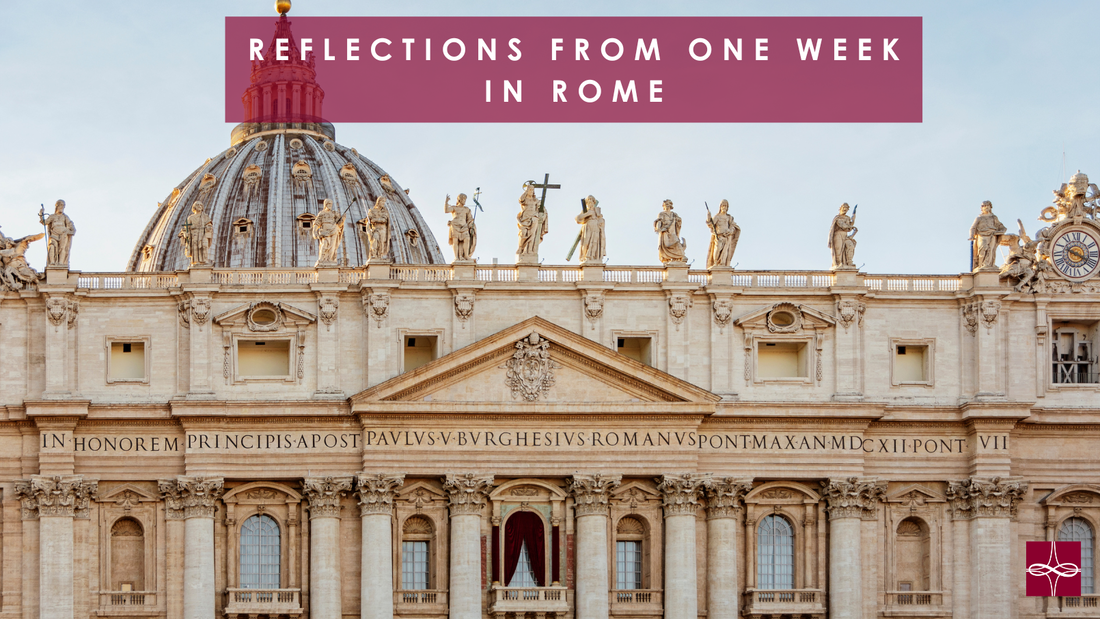

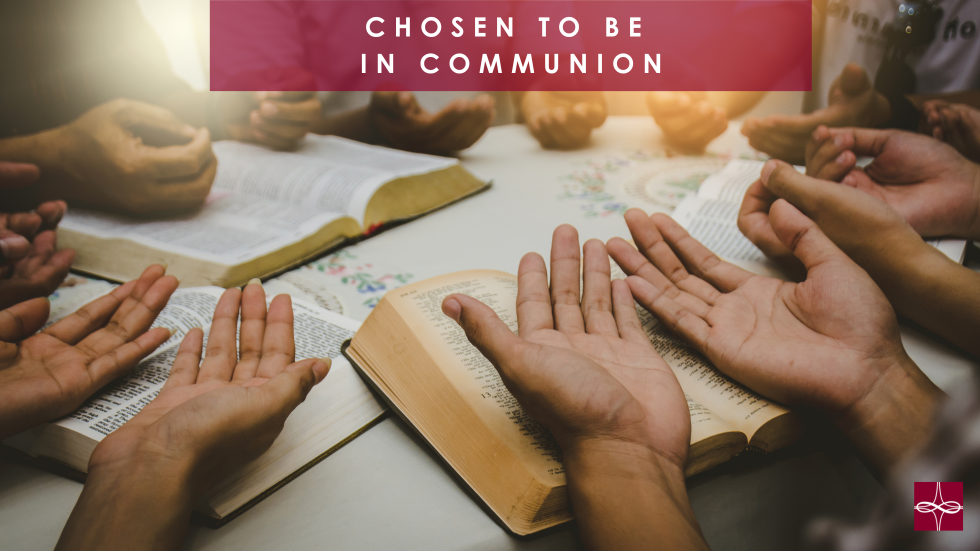
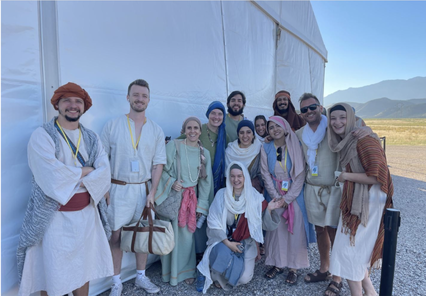
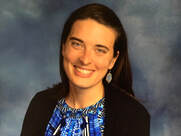
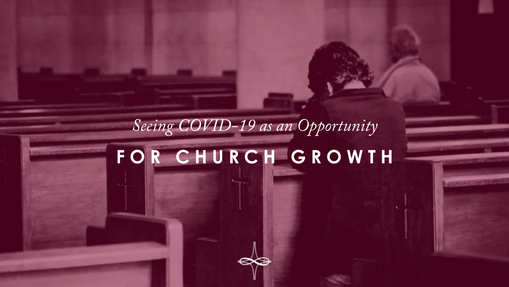
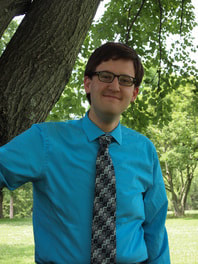
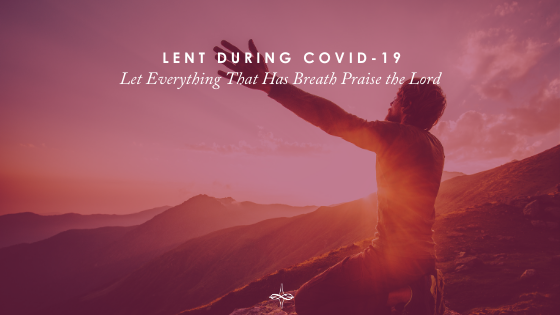
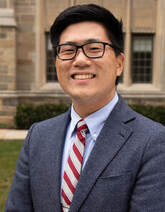

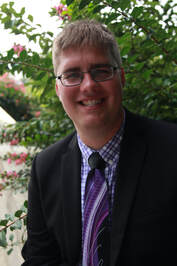
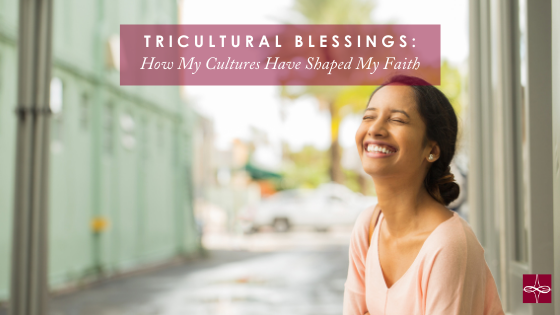
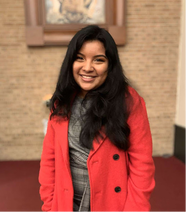
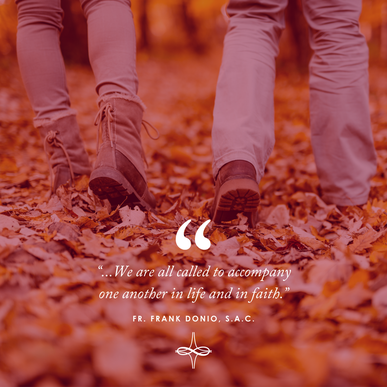
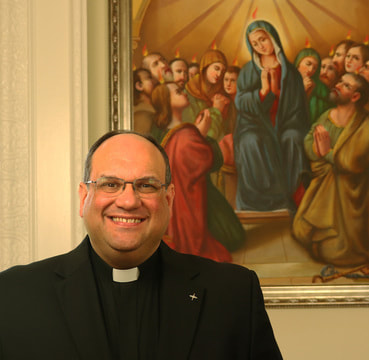


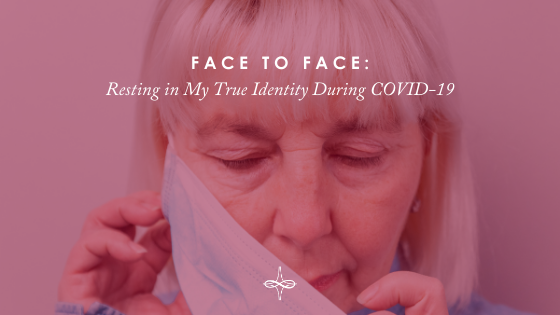

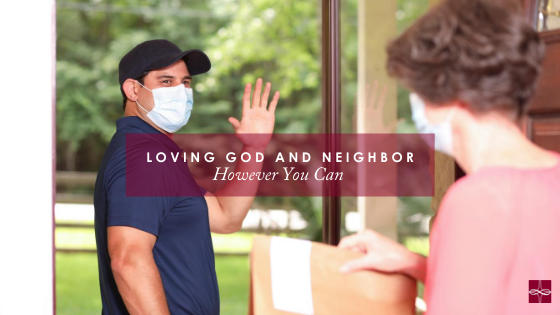

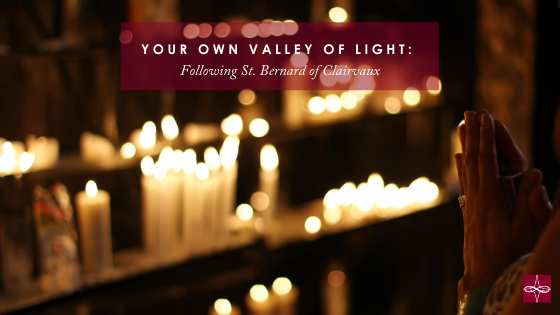

 RSS Feed
RSS Feed